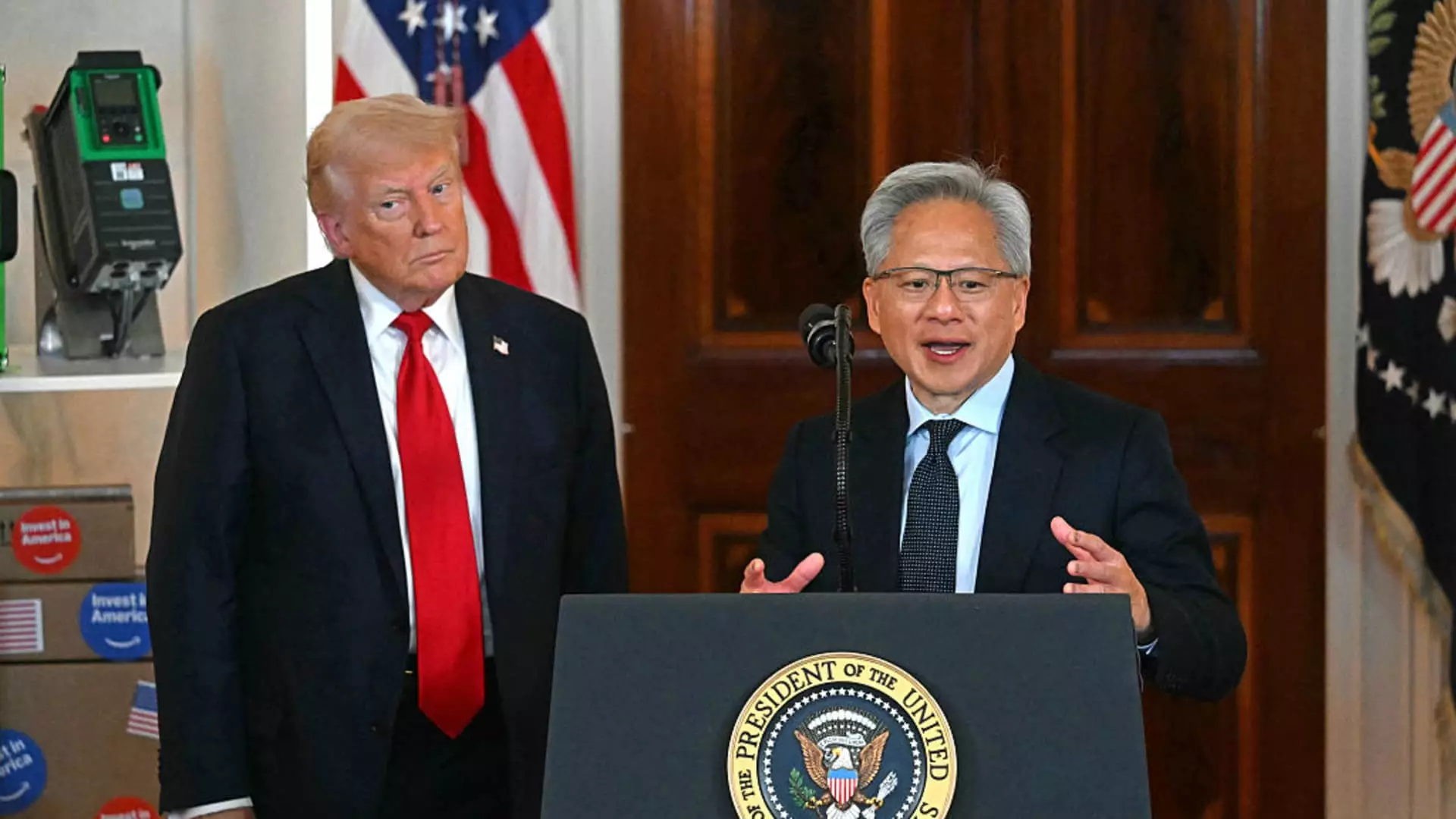In recent months, a fierce debate has erupted within the corridors of power over the Biden administration’s approach to the export of advanced semiconductor technology to China. While some officials emphasize economic growth and global competitiveness, others warn that such policies could undermine national security and military strength. At the heart of this controversy lies a fundamental question: should the United States prioritize technological leadership at all costs, or is it more prudent to restrict access in order to safeguard national interests?
This debate gained urgency when six prominent Senate Democrats publicly voiced their concerns about a still-controversial deal involving tech giants Nvidia and AMD. Under this arrangement, the companies were authorized to sell AI chips to China but in exchange, were asked to surrender a 15% share of the revenue. The senators argued that this “revenue-sharing” deal is a dangerous erosion of America’s strategic advantage, potentially strengthening China’s military capabilities and compromising U.S. leadership in artificial intelligence.
What makes this situation particularly complex is the administration’s rationale: enabling sales to China may foster innovation, create economic opportunities, and keep tech firms competitive globally. However, critics—implicitly and explicitly—contend that such policies are shortsighted. They suggest the deal offers Beijing a backdoor to acquire cutting-edge AI technologies, potentially leveling the playing field for China’s military modernization efforts and undermining U.S. supremacy.
National Security vs. Economic Diplomacy
The strategic concern voiced by senators revolves around the dual-use nature of advanced AI chips. Technologies like Nvidia’s H20 and AMD’s MI308, while beneficial for commercial applications, have the potential to enhance military systems. The senators contend that selling these chips to China could inadvertently contribute to the development of capabilities that threaten regional and global stability. Their argument is rooted in a deeply held conviction that American technological superiority is a cornerstone of national security and a vital measure of geopolitical influence.
However, the Biden administration’s defenders argue that restrictions may be excessively cautious or even counterproductive. They advocate for a pragmatic approach: allowing sales to promote cooperation and innovation, which could ultimately benefit national interests. The administration suggests that the revenue-sharing deal with Nvidia and AMD is a strategic compromise, intended to strike a balance between competitiveness and security.
Yet, critics on both sides acknowledge that the devil is in the details. The revenue split might appear as a minor concession, but many see it as a slippery slope toward loss of competitive advantage, allowing China to leapfrog U.S. innovation with assistance from American firms’ top-tier chips. The fact that the Chinese government is reportedly discouraging its companies from purchasing U.S. chips signals a broader concern that American policies are failing to contain China’s rising technological ambitions.
Corporate Responses and Geopolitical Ramifications
In response to the accusations, Nvidia issued a statement denying that its chips could enhance military capabilities, claiming instead that their products are designed to support the global AI race and benefit the U.S. economy. The company maintains that restricting access to powerful chips like the H20 has cost American taxpayers billions while sacrificing the country’s position as a technological leader. AMD, on the other hand, declined to comment immediately, leaving the debate open-ended and highlighting the opaque nature of such corporate strategies.
What adds tension to this issue is the ongoing geopolitical chess match. China’s tightening restrictions and pushback suggest that American export controls may be less effective than intended. Instead of stifling China’s technological growth, restrictive policies might be provoking Beijing to accelerate its domestic semiconductor development. Should this trend continue, the long-term impact could be a diminished U.S. influence in critical future industries.
In essence, the debate boils down to a broader question: Is it prudent to sacrifice some element of national security for short-term economic gains? The Democratic senators clearly believe that relinquishing technological dominance sets a dangerous precedent, one that could jeopardize American military superiority and global leadership. Conversely, the administration’s stance hints at a desire to balance competing priorities—yet, the risks inherent in this balancing act are sizable. If American companies fuel China’s tech boom, the ultimate cost might be America’s own strategic decline.

